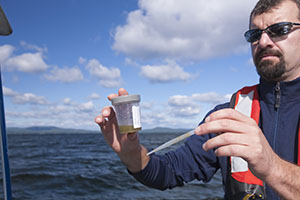 Water crises seem to be everywhere, from the ongoing droughts in the West to the recent water-related disaster in Flint, Michigan, to the problem of clean water that devastates the people of many third-world countries. Still, if you don't live in these areas, it may feel like these issues don't, or won't, affect you: but that couldn't be further from the truth. Here is what you should know about water safety and how you can contribute to the solution.
Water crises seem to be everywhere, from the ongoing droughts in the West to the recent water-related disaster in Flint, Michigan, to the problem of clean water that devastates the people of many third-world countries. Still, if you don't live in these areas, it may feel like these issues don't, or won't, affect you: but that couldn't be further from the truth. Here is what you should know about water safety and how you can contribute to the solution.
The Water Problem:
Clean water is necessary to prevent disease and to sustain human life. According to the organization Water.org, approximately 663 million people lack access to clean drinking water, that's about two times the population of the United States; which makes the water problem no less than a global public health emergency that's only going to get worse. In 2015, the World Economic Forum rated the water crisis number one ahead of climate change, terrorist attacks, and the spread of infectious diseases as far as risks that "are very likely to occur and with massive and devastating impacts."
How We Contribute:
According to the United Nations, humans' use of water has been increasing at twice the rate of population increases over the last century. Climate change, burning fossil fuels, pollution, the use of pesticides and fertilizers in agriculture all have an impact on the quality and availability of water resources.
Is Your Water Safe?
There are many resources available to help regular consumers find out about the safety of the water in their area. One easy to use database is maintained by the Environmental Working Group. Just type in your zip code to see reports on pollutants and chemicals related to health recommendations and legal guidelines. The Environmental Protection Agency also provides access to its Safe Drinking Water Information System.
Protecting Your Family:
If the water in your region is of questionable quality, there are many filtering systems available that can increase the safety of your supply. Faucet or carafe filters, reverse-osmosis systems, and just plain old boiling can all reduce contaminants and bacteria. Follow this link to the National Sanitation Foundation for help choosing the best water filteration system for your needs.
Be Part of the Solution:
Although the causes of water scarcity may seem too big to fathom, there are many things individuals and communities in New York can do to reduce the problem. These include limiting your own use of water, eating locally grown foods, and reducing your consumption of red meat. Driving less and using water friendly landscaping can also have a positive impact. Finally, donating to organizations like The Water Project or Charity: Water will help to bring clean water to those in high risk areas.